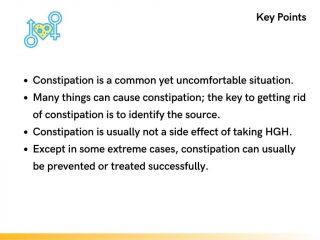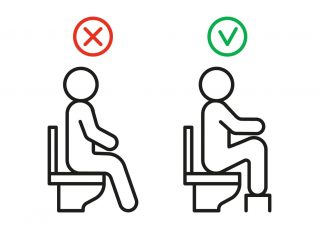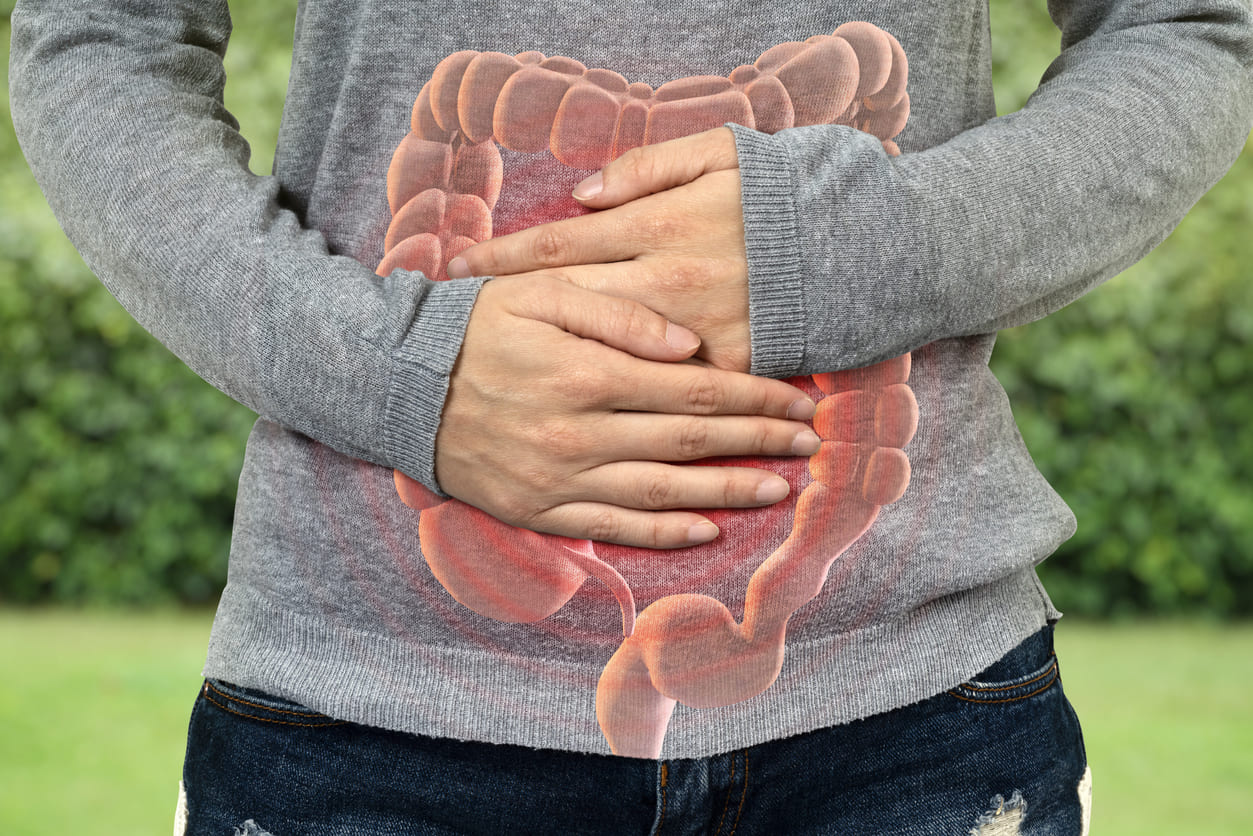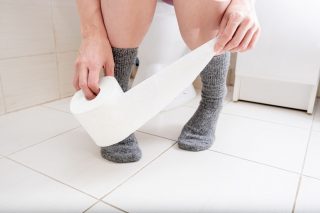How to Relieve and Get Rid of Constipation Forever

Constipation can be a common and frustrating issue, but there are ways to relieve and get rid of constipation for good.
Constipation is a common digestive problem that affects people of all ages. It occurs when bowel movements become infrequent or difficult to pass, leading to discomfort and potential health issues. Understanding constipation, its causes, preventive measures, and effective treatments is crucial for maintaining good digestive health.
Understanding Constipation
Constipation is defined as having fewer than three bowel movements per week or experiencing difficulty in passing stools. It often results in hard, dry, and small stools. While occasional constipation is normal, chronic constipation can lead to complications and should be addressed.
It is normal to experience occasional constipation; however, if the condition happens often and is chronic, it could be cause for concern. The severity of constipation varies from person to person. Long-term constipation should not be ignored; not only can it cause considerable discomfort, negatively impacting your quality of life, but it could also be indicative of a more serious underlying condition such as Chron’s disease or cancer.
Causes of Constipation
There can be any number of things that can cause or contribute to constipation, so it could be difficult to nail down the exact cause. However, there are many things that doctors know that can lead to constipation. The following are some of the most common causes.
- Dietary Factors: Poor dietary choices, such as a lack of fiber, inadequate water intake, and excessive consumption of processed foods, can contribute to constipation. Fiber is essential for softening stools and promoting regular bowel movements.
- Inadequate Fluid Intake: Not drinking enough water can lead to dehydration, making stools harder and more difficult to pass.
- Sedentary Lifestyle: Lack of physical activity can slow down digestion and bowel movements, increasing the risk of constipation.
- Medications: Some medications, such as certain pain relievers, antacids containing calcium or aluminum, and some antidepressants, can cause constipation as a side effect.
- Medical Conditions: Underlying medical conditions like irritable bowel syndrome (IBS), thyroid disorders, diabetes, and neurological conditions can contribute to chronic constipation.
- Psychological Factors: Stress, anxiety, and depression can affect gut function and contribute to constipation.
Symptoms of Unhealthy Constipation
It is important to recognize the distinction between an occasional bout of constipation and the symptoms of unhealthy constipation that are cause for concern.
Here are some signs and symptoms that may indicate severe or chronic constipation:
- Infrequent Bowel Movements: Severe or chronic constipation often involves passing stools less than three times a week.
- Difficulty Passing Stool: You may have to strain significantly to have a bowel movement, and the stool may be hard and dry.
- Incomplete Evacuation: Even after a bowel movement, you may feel like you haven’t completely emptied your bowels.
- Abdominal Discomfort or Pain: You may experience persistent abdominal discomfort, cramping, or pain, which can range from mild to severe.
- Bloating and Distension: Your abdomen may feel swollen or bloated due to the
- accumulation of gas and stool in the intestines.
- Rectal Bleeding: Straining during bowel movements can sometimes cause minor rectal bleeding or the presence of blood on the toilet paper.
 Anal Fissures or Hemorrhoids: Chronic constipation can lead to the development of anal fissures (tears in the lining of the anus) or hemorrhoids (swollen blood vessels in the rectum).
Anal Fissures or Hemorrhoids: Chronic constipation can lead to the development of anal fissures (tears in the lining of the anus) or hemorrhoids (swollen blood vessels in the rectum).- Changes in Stool Consistency: Stools may vary in consistency, ranging from very hard and lumpy to loose and watery, when severe constipation leads to overflow diarrhea.
- Fecal Impaction: In some cases, a large mass of dry, hard stool can become stuck in the rectum or colon, leading to severe pain, nausea, and even vomiting.
- Reduced Quality of Life: Chronic constipation can significantly impact your daily life, causing discomfort, embarrassment, and a decreased quality of life.
The Relationship Between HGH and Constipation
There have been some clinical studies that indicate that taking HGH could lead to certain kinds of gastrointestinal distress, including constipation. However, constipation is not listed as a common or likely side effect of HGH. In fact, for patients who have had sections of the bowel or intestines removed to treat cancer or other diseases, HGH is often prescribed to these patients because it has been shown to help speed repair and enhance the growth of intestinal tissues.
While constipation is not commonly listed as a side effect of growth hormone therapy, it’s important to note that any medication or hormone therapy can affect individuals differently, and some people may experience digestive issues or changes in bowel habits as a result of HGH treatment.
If you are taking HGH and experiencing constipation, it’s essential to consult with your prescriber. They can help determine the cause of your constipation and provide guidance on managing it. Constipation can have various causes, including dietary factors, medications, dehydration, and underlying medical conditions, so it’s essential to rule out other potential causes.
Home Remedies for Constipation
Increasing your intake of dietary fiber and making sure you drink enough water are the most important ways to prevent or get rid of constipation. Here are a few more home remedies or natural solutions for constipation.
- Prunes or Prune Juice: Prunes contain natural laxatives and are a well-known remedy for constipation. You can eat dried prunes or drink prune juice.
- Warm Water with Lemon: Drinking warm water with freshly squeezed lemon juice in the morning can help stimulate bowel movements.
- Aloe Vera Juice: Aloe vera juice, when consumed in moderation, can have a mild laxative effect and help with constipation.
- Natural Yogurt with Probiotics: Yogurt containing probiotics (live beneficial bacteria) may help regulate the digestive system and alleviate constipation.
- Olive Oil: Taking a tablespoon of olive oil in the morning on an empty stomach can lubricate the digestive system and promote bowel movements.
Best Position to Poop When Constipated

Believe it or not, the position in which you poop can help prevent or get rid of constipation. This has to do with the alignment of your rectum and colon, which can be influenced by your body’s posture on the toilet. There are two primary positions to consider: the traditional sitting position and the squatting position.
The way most of us move our bowels in Western societies, seated on a typical toilet, is not the best poop position to prevent when constipated. This position can cause a kink or bend in the rectum, making it more difficult to pass stool. The muscles involved in the evacuation process may not function optimally, potentially leading to constipation.
It is better to poop in a squatting position. The squatting position aligns the rectum and colon more naturally, allowing for a straighter pathway for stool to exit the body. This position may make it easier to eliminate waste, potentially reducing the risk of constipation.
Strategies to Relieve and Prevent Constipation
Here are some strategies to relieve and prevent constipation.
- Dietary Changes: Incorporate high-fiber foods into your diet, such as whole grains, fruits, vegetables, and legumes. Fiber adds bulk to stools and helps promote regular bowel movements.
- Hydration: Drink plenty of water throughout the day to keep stools soft and easier to pass. Aim for at least 8-10 cups of water daily.
- Regular Exercise: Engage in regular physical activity, like walking, jogging, or yoga, to stimulate bowel movements and maintain overall digestive health.
- Establish a Routine: Try to have bowel movements at the same time each day. The body’s natural urge to have a bowel movement often occurs in the morning.
- Limit Trigger Foods: Reduce or eliminate foods that can contribute to constipation, such as processed foods, dairy products, and excessive caffeine.
Treatments for Constipation
If the preventive measures and the lifestyle changes mentioned above do not offer relief from your constipation, here are some of the treatment options that are available to get rid of constipation forever.
- Over-the-counter (OTC) Remedies: Mild constipation can often be managed with OTC laxatives or stool softeners. These should be used under the guidance of a healthcare professional.
- Prescription Medications: In cases of chronic constipation, a doctor may prescribe medications like lubiprostone or linaclotide to promote bowel movements.
- Biofeedback Therapy: For some individuals with severe constipation, biofeedback therapy can help improve muscle coordination in the rectum and anus.
- Surgery: In extreme cases where all other treatments fail, surgical procedures like colectomy (partial or complete removal of the colon) may be considered as a last resort.
Diet and Constipation
The most common reasons for constipation are dietary. Eating a diet high in fiber that can help maintain a healthy balance of the gut microbiome is one of the best ways there is to prevent and get rid of constipation. Dietary fiber adds bulk to your stools and helps them move through the digestive tract more smoothly. Include plenty of fiber-rich foods in your diet, such as:
- Whole grains (brown rice, whole wheat bread, oats, quinoa)
- Fruits (apples, pears, berries, prunes)
- Vegetables (broccoli, spinach, carrots, sweet potatoes)
- Legumes (beans, lentils, chickpeas)
In addition to getting enough fiber, it is essential to stay hydrated to prevent or get rid of constipation. Drink plenty of water throughout the day to keep your stools soft and easier to pass. Probiotics like those found in fermented foods like Kimchi, yogurt, and Kefir are also important to prevent and get rid of constipation by helping to maintain a healthy balance of gut microflora.
Exercise and Constipation
A sedentary lifestyle can lead to constipation. Regular exercise can help prevent or get rid of constipation. Exercise stimulates the digestive system and helps food and waste move through the intestines at an appropriate pace. A lack of physical activity can result in slower bowel transit times, allowing more water to be absorbed from the stool making it harder and more difficult to pass.
To help prevent or alleviate constipation, incorporating regular physical activity into your routine is important. Brisk walking, jogging, cycling, and swimming increase heart rate and stimulate digestion. Aim for at least 30 minutes of moderate-intensity aerobic exercise most days of the week to prevent or get rid of constipation.
Gas and Gut Problems
The gastrointestinal system is quite complex. Gas and gut issues are also intimately related to constipation. When your body doesn’t fully digest certain foods, it can lead to the production of excess gas in the digestive system. This gas can build up in the intestines, causing discomfort and contributing to constipation. When gas is trapped in the digestive tract, it can lead to bloating, which can make constipation symptoms worse. Bloating can also make it difficult for stool to pass through the intestines.
In addition, your gut is home to trillions of bacteria, collectively known as the gut microbiome. An imbalance in the composition of this microbiome, such as an overgrowth of harmful bacteria or a lack of beneficial ones, can affect digestive function. This imbalance may contribute to constipation.
Many of the recommendations to get rid of constipation mentioned above, such as eating enough fiber, staying hydrated, and taking probiotics, can also help reduce gas and maintain good gut health.
Conclusions
Understanding constipation and its causes is the first step toward preventing and effectively treating this common digestive issue. By adopting a fiber-rich diet, staying hydrated, leading an active lifestyle, and establishing a regular bowel routine, you can significantly reduce your risk of constipation. If you experience chronic or severe constipation, it’s essential to consult a healthcare professional for proper evaluation and guidance on the best treatment options for your specific needs. With the right approach, you can overcome constipation and maintain optimal digestive health for the long term.


 Anal Fissures or Hemorrhoids:
Anal Fissures or Hemorrhoids: